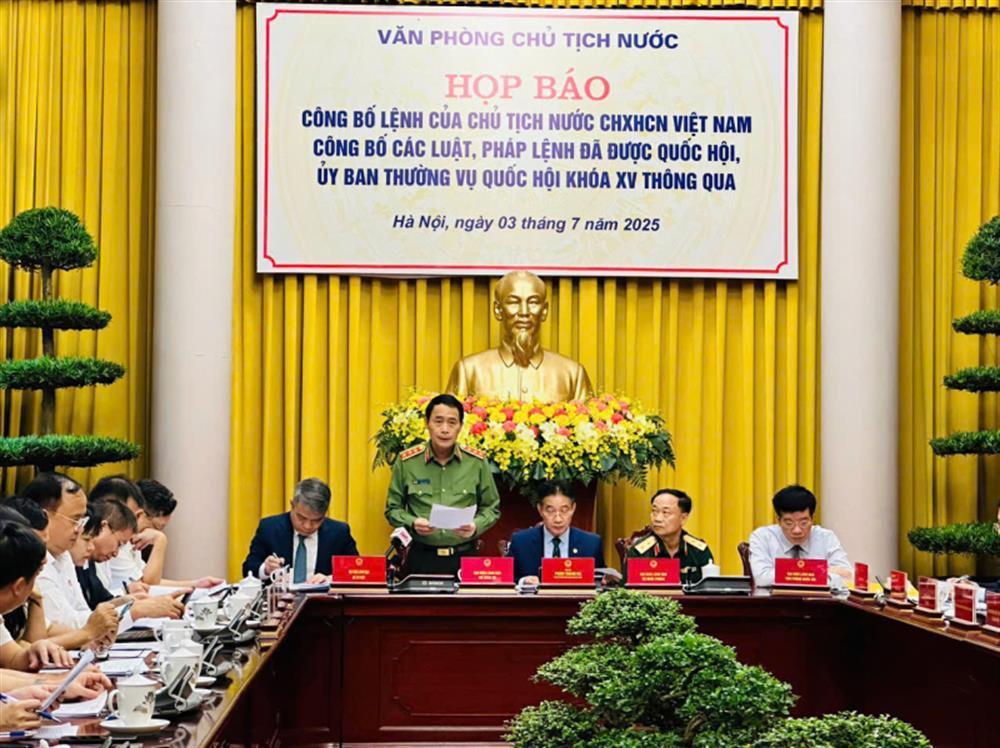Member of the Party Central Committee and Deputy Minister of Public Security Senior Lieutenant General Le Quoc Hung; Member of the Party Central Committee and Deputy Chief of the General Staff of the Vietnam People’s Army Lieutenant General Thai Dai Ngoc; and Vice Chairman of the Presidential Office Pham Thanh Ha co-chaired the press conference.
At the conference, Vice Chairman Pham Thanh Ha announced the President’s order to promulgate 15 laws and one ordinance recently adopted by the National Assembly, including the Law on Amendments and Supplements to Certain Articles of the Penal Code, which the Ministry of Public Security held the principal responsibility for drafting.
 |
| Deputy Minister Le Quoc Hung introduces essential contents of the Law. |
At the conference, Deputy Minister Le Quoc Hung briefed the press on fundamental contents of the Law on Amendments and Supplements to Certain Articles of the Penal Code.
Accordingly, the Law on Amendments and Supplements to Certain Articles of the Penal Code comprises four articles.
Specifically, Article 1 revises or supplements 39 articles of the Penal Code; Article 2 amends several related laws, namely the Law on Criminal Judgment Execution, the Law on Amnesty, the Law on Human Trafficking Prevention and Combat and the Law on the People’s Public Security Forces; Article 3 stipulates the effective date; and Article 4 contains transitional provisions.
The Deputy Minister highlighted that key amendments include the abolition of the death penalty for eight offenses; a double monetary fines for 24 offenses—mainly those related to counterfeit goods, environmental violations, food safety and corruption; and increased prison terms for eight crimes, particularly those involving environmental protection, drug offenses and food safety.
Additionally, the law introduces provisions exempting individuals with terminal-stage cancer from execution of the death penalty.
It also incorporates the narcotic substances of ketamine and fentanyl into the legal definitions of five drug-related offenses, ensuring legal consistency with the dangerous nature of these substances and alignment with current regulations.
Amendments to related laws aim to ensure compatibility with the organizational structure of the political system, as regulated in other legal documents.